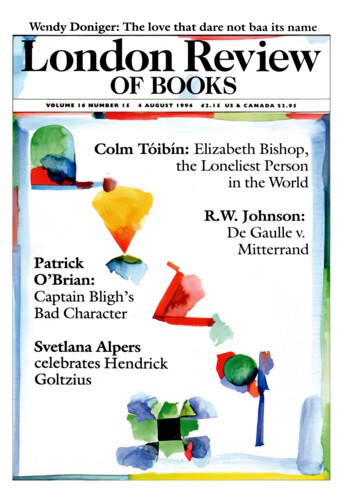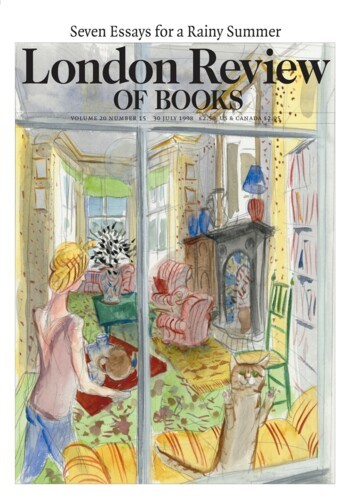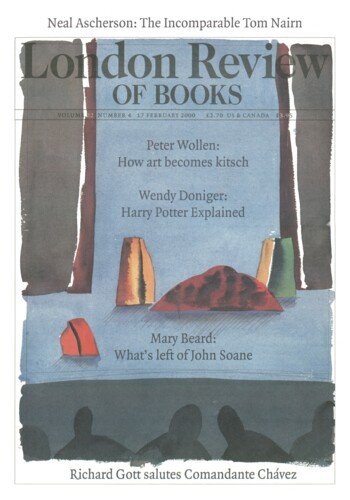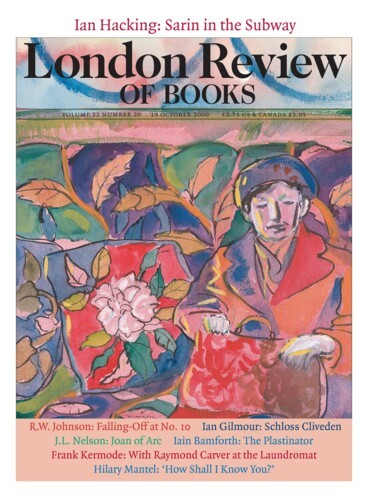Migne and Moody
Graham Robb, 4 August 1994
‘The day of the Lord so cometh as a thief in the night’ (I Thessalonians 5.2). In 19th-century France, it came in the shape of the abbé Jacques-Paul Migne. Between 1840 and 1870, with the help of several hundred poorly-paid workers and the latest in steam-powered printing, Migne undid the effects of the French Revolution, reversed the Reformation, created ‘the two most beautiful historical monuments to be found anywhere in the world’ and directed ‘the greatest publishing enterprise since the invention of printing’.




